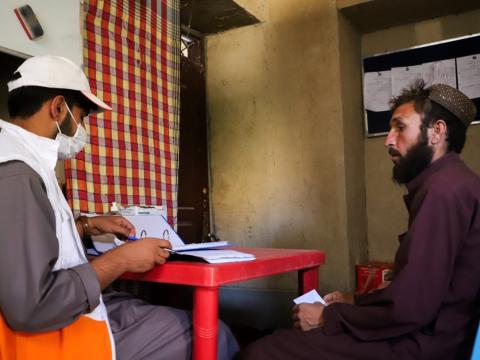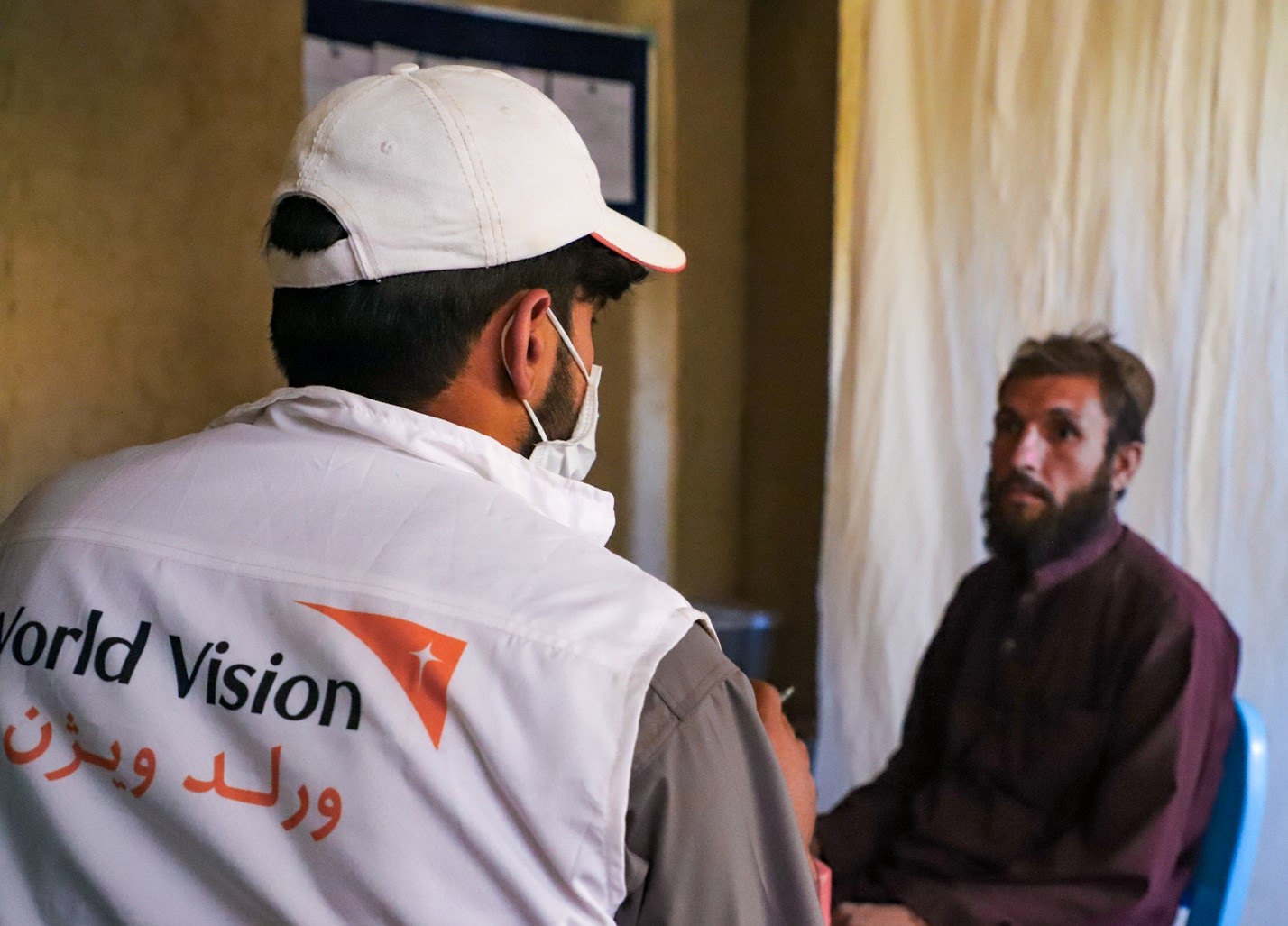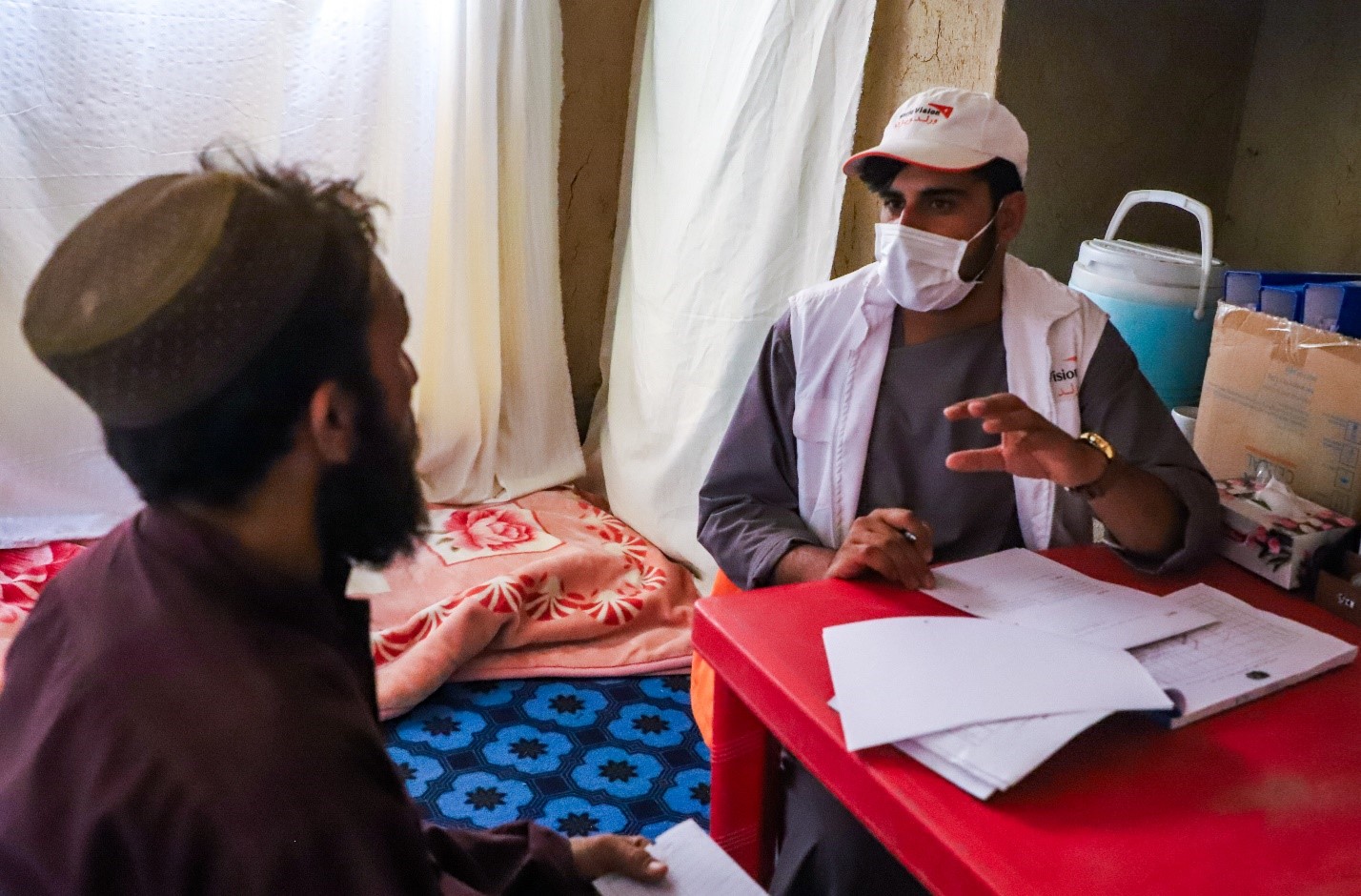Psychosocial Support Brings Families Together

Hamid*, 22-year-old, lives in one of the most remote villages in Badghis Province, Afghanistan. He is a farmer who is paid to work for local landowners. After his father passed away two years ago, the responsibility of providing for his family fell to Hamid.
The challenge of feeding his family on an extremely limited income – and under the threat of conflict – puts considerable stress on Hamid, negatively impacting his mental health.
This stress had severe consequences for both Hamid and his family members. He explains, “I didn’t want to spend time with my family. I would hit my children and wife sometimes, even up to five times a day. Sometimes, I would order my children to leave the room,” he said.
Out of concern for Hamid and his family, Hamid’s uncle took him to the city to seek treatment. Unfortunately, the commute to the city combined with the cost of counselling and medicine was too expensive for Hamid’s family, and as a result, the few trips they were able to afford were not sufficient to provide adequate treatment for Hamid.
“My uncle took me to the city for treatment three times, but we could not afford to visit the doctor often and take more medicine,” he added. “So that did not help a lot.”
Hamid’s mental health continued to deteriorate for several months until one of World Vision Afghanistan (WVA)’s Health and Nutrition Teams (MHNTs) under the Emergency Life-saving Food Security Through Cerebrovascular Accidents and Health/Nutrition Assistance to Drought and Conflict-Affected Communities project, funded by the German Federal Foreign Office (GFFO), started providing healthcare services in the village. His uncle heard about this team, which provides free healthcare services. He advised Hamid to visit this mobile health team for treatment.
After a consultation with the team, Hamid received Mental Health and Psychosocial Support (MHPS) services.

He has been under a WVA counsellor’s care for four months now. As part of his treatment plan, Hamid receives regular counselling and medication. WVA also educates Hamid on the rights of his children and wife and his responsibilities as a father and husband. Hamid continues to visit the centre each week for a 1.5-hour session with his counsellor.
During his four months of treatment, Hamid has improved significantly. “During the four months of treatment, my behaviour has changed with children, and I didn’t hit them,” he said.

Now, he enjoys spending time with his family and sends his children to school to get an education. “I am happy with my family now. The doctor helped me bring happiness back to my family,” he said.
Hamid says if he had not received this counselling, his situation would have deteriorated further, and his family would have continued to suffer.
*Not a real name